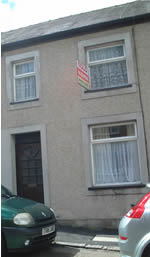Many primary school children are not becoming fully literate in English because their teachers are apparently letting them use “street talk” in the classroom, according to a report commissioned by the mayor of London and reported in The Guardian today.
One third of children in London have reading difficulties at the age of 11, and the report claims that reasons for this include teachers’ reluctance to ‘correct’ pupils’ English so as not to interfere with their self-expression; indifference among working class parents to their children’s education; and imperfect knowledge of “spelling and syntax” among teachers.
The report’s author, Miriam Gross, a teacher and journalist, recommends a structured use of synthetic phonics to teach literacy.
The report appears to be based, at to some extent, on anecdotal evidence, so the conclusions aren’t necessarily the most reliable. It describes the language used by pupils as “argot mixing linguistic influences from Cockney to Indian” and comments that “White and non-white children alike in deprived inner-city areas often speak “street”, with its own grammar, vocabulary and pronunciation.”
The dictionary definition of literacy is:
- the ability to read and write
- the ability to use language proficiently
However there are different degrees of literacy, ranging from ‘functional literate’ – those who can read and write what they need to function in everyday life; and ‘highly literate’ – those who are very well-read and write elegant, standard language. Those at the latter end of the continuum might view those at the other end as illiterate, and might describe their language as inarticulate, argot, patois, incoherent grunts or use similarly scathing terms – the report certainly does so. Such judgements are rarely based on a thorough understanding of the varieties of language in question.
Are pupils corrected when they use non-standard language in your country?
